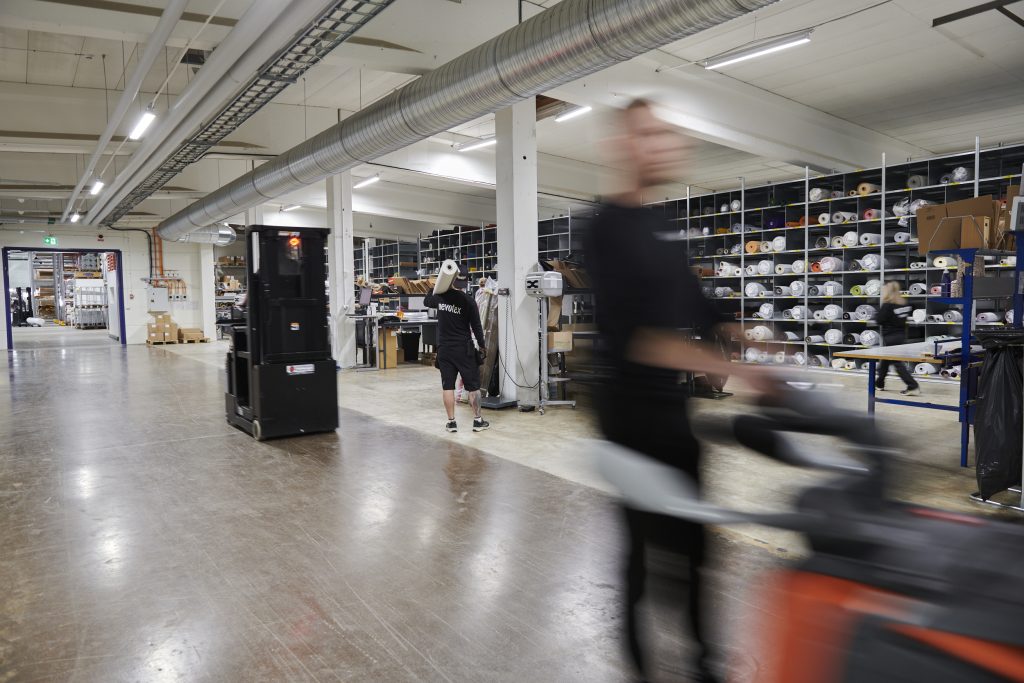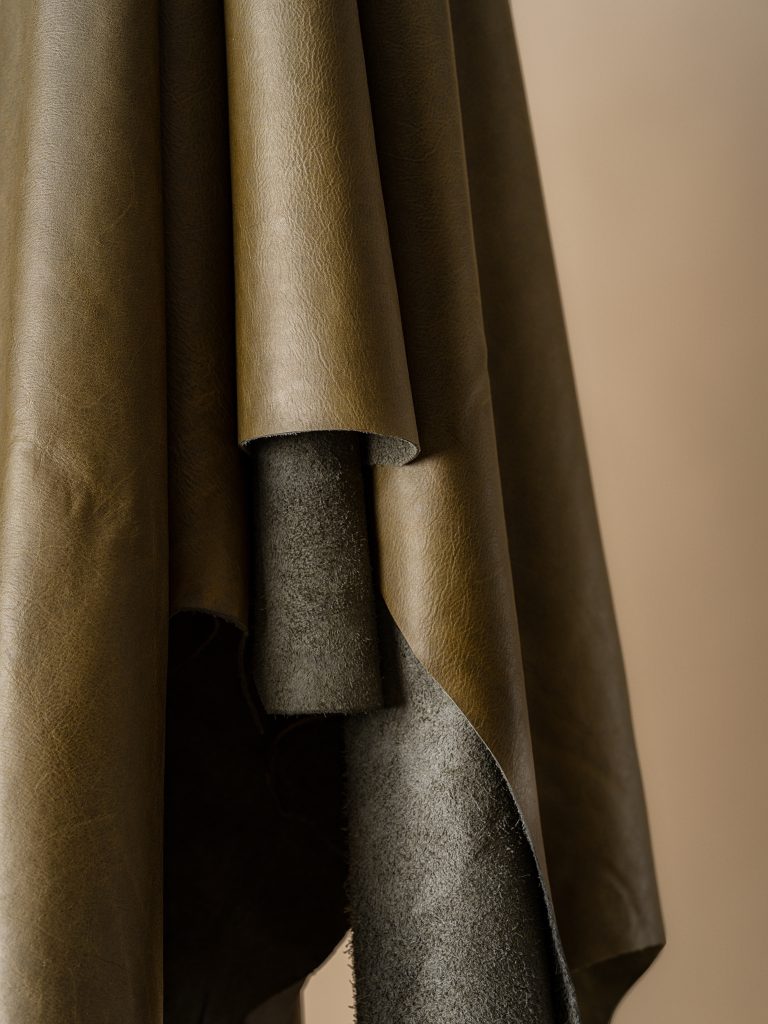
The Swedish region of Småland has been described as unique for its industrial and entrepreneurial drive. One of northern Europe’s leading wholesalers and suppliers of fabrics and natural and artificial leather, Nevotex, is based right outside of the small city of Nässjö. Two years ago, the company initiated a comprehensive sustainability work, says Quality, Environment and Sustainability Manager, Sandra Comstedt.
— Now, we have a structure and have made a lot of progress and have knowledge about our suppliers that we didn’t have before, she says.
— And we’ve started working a lot with recycled supply, says Urban Stenevi, CEO. You can always find fabrics that are recycled from PET bottles but is that a good way forward? Instead, we want to find those that are recycled from used textiles, to be part of the circular system and economy.

However, Sandra Comstedt points out, the most important thing is that everybody in the company is involved in this work.
— We have put a lot of effort into education both in Sweden but also in our offices in Lithuania, Estonia, Norway, Finland, and Denmark. Every employee is involved and we see that we can take market shares because of this work.
What have you learned working with sustainability in the supply chain?
— To have the facts behind and have done, or start, audits before we start a cooperation with a supplier is very important, says Comstedt. In the beginning, when we went to a supplier that we had been working with for 20 years, some of them just said no, that we couldn’t make any audits. They thought that we were just going to go to their suppliers to buy the material. But when we explained why we are doing it, they now also meet our demands.
— We can now come to the supplier with the demands from the market and tell them that we need all this information to secure the sustainability for our customers, Urban Stenevi adds. And now, not only have our suppliers changed their minds but also started their own internal sustainability work.


If a design company is asked about sustainability, they will of course state how important it is, which is the official image. However, internally it might look different, and we can see how greenwashing is a huge problem. What’s your view on this, for the customers you work with?
— For the big customers, it is important and they want to know a lot of things — while the smaller customers don’t have these demands yet, says Sandra Comstedt.
— For our salespeople, when they book a meeting with a large interior design company, today they normally ask us if we have a sustainability report, says Urban Stenevi. They don’t book any meetings with companies that do not have proper sustainability work. This year, we will come up with our third or fourth sustainability report, stating where we are and what we have achieved in the last year and also what our target is for 2025. And we have also now started to categorize our assortment, where certain parts are in a ’More sustainable’ range, to guide our customers to make the proper choices.
We’re now in challenging times with macroeconomic factors, inflation, and a war in Europe. Will sustainability remain as important in the next few years?
— I think so. Everybody is so aware of the increasing climate crisis. Younger people who come from school have education about this and are really updated, while older people who have been working in the industry don’t have the same demands…, says Comstedt.
— A more sustainable choice doesn’t need to be more expensive, especially when it comes to leather, Stenevi explains. From the beginning of this year, one of our largest suppliers of leather provides us with OEKO-TEX leather and the surcharge is more or less zero. We push the market for a more sustainable supply chain but the price increase will be more or less zero. Now, it’s a demand — it’s mandatory to have a sustainable choice.
When looking at further developing the sustainability work, Sandra Comstedt states that production is key, in order to continue to cut emissions.
— But it’s also a hard part to calculate, she says. One supplier may count cradle to cradle, while the next one just calculates two steps. We don’t want to put the wrong figures in the market but to be able to calculate the same facts. I would be glad if it will become a standard that says: ’this is the way you should calculate your carbon footprint’.
And that brings us back to working with innovation and recycled materials. Nevotex became the first producer in Sweden to offer leather tanned with olives, which is also Cradle to Cradle certified. Called Vitoria, it’s been used by Carl Hansen & Søn and others to reduce the environmental impact of one of the world’s, otherwise, dirtiest industries. This season, the company has launched Wooly, a GRS-certified (Global Recycle Standard) collection made in Italy consisting of 70 per cent recycled wool.
— It comes from textile recycling, collecting old clothes that are torn apart to make new wool fibres and weaved into a new fabric, Urban Stenevi explains.
— Producing new wool material will mean a very high carbon footprint. This collection only has 0.5 kg in carbon footprint, so it’s a huge difference per kilo. The challenge comes with traceability in recycled material, but in my opinion, it’s still more environmentally friendly, Comstedt adds.


Urban Stenevi explains that the company is very aware that everything produced has an impact.
— We can never ever say that what we are doing is an absolutely sustainable choice. We will not lie to our customers or try to build a nice picture, he says. Instead, we can help and educate our customers to make the least impact as possible with guidelines. In our sustainability work, we will continue to have all our suppliers give us materials that are certified in accordance with European or world-leading certifications, such as OEKO-TEX. That way, we can develop our assortment to make the best choice possible, he concludes.


